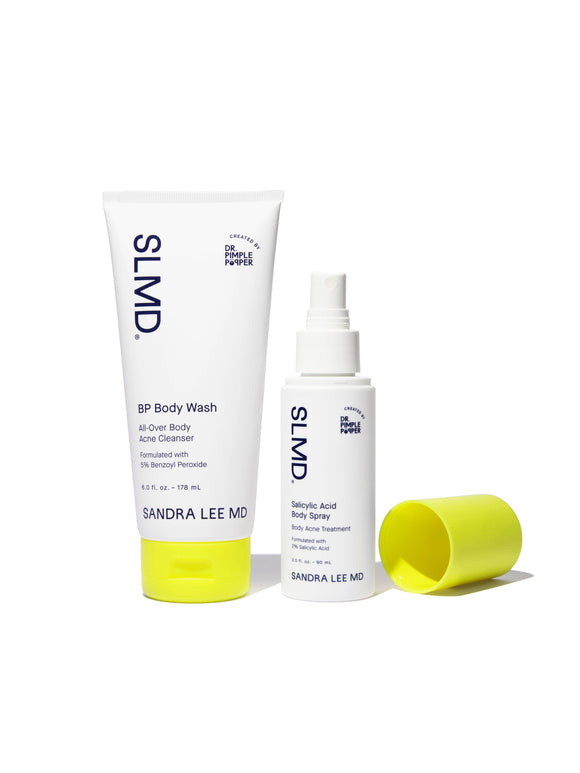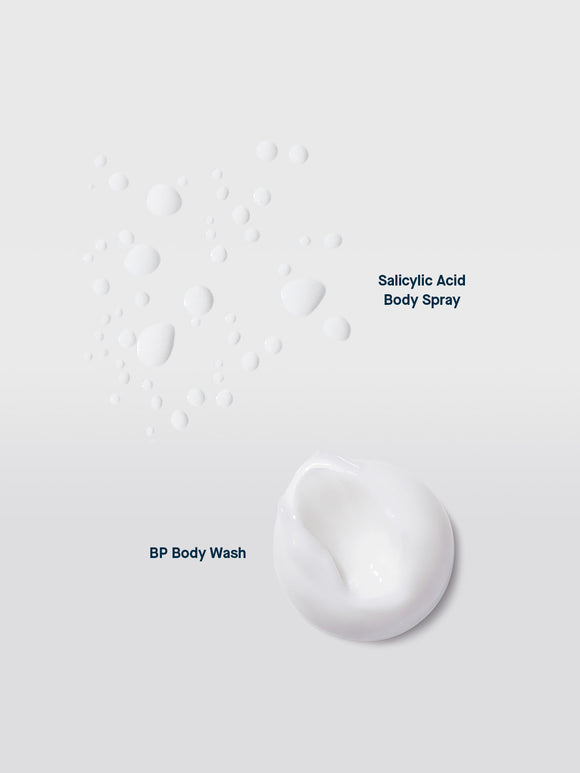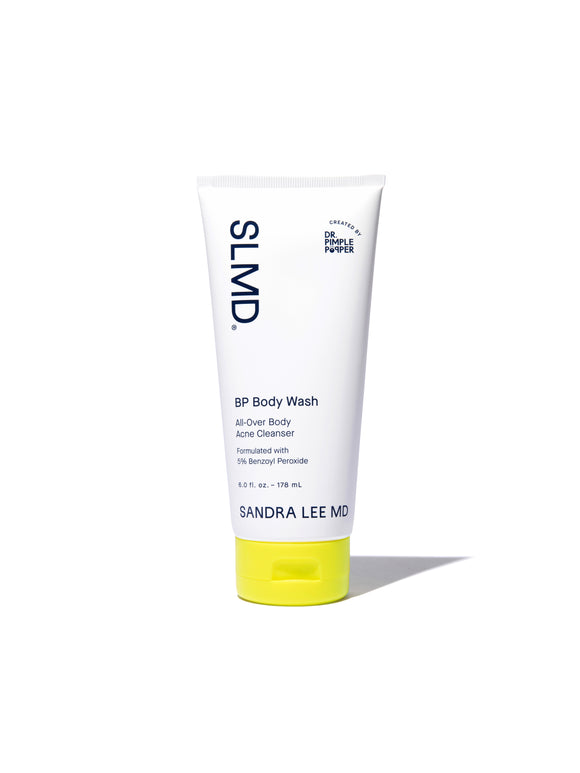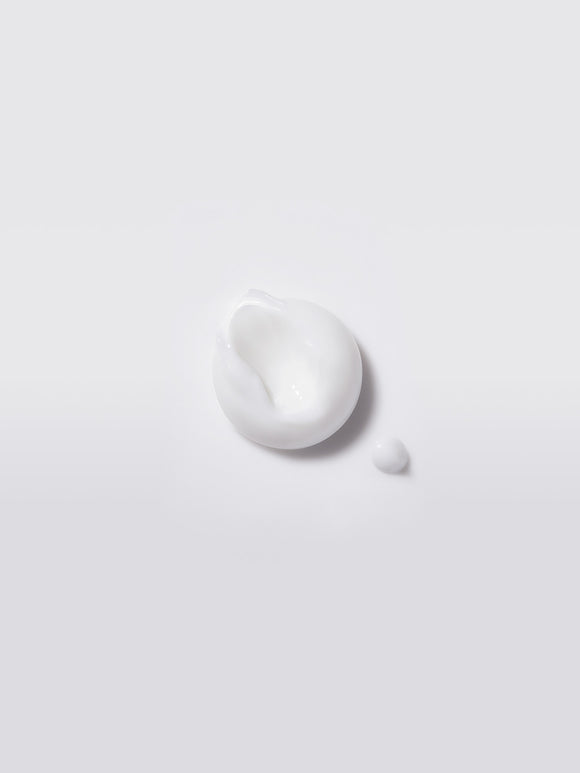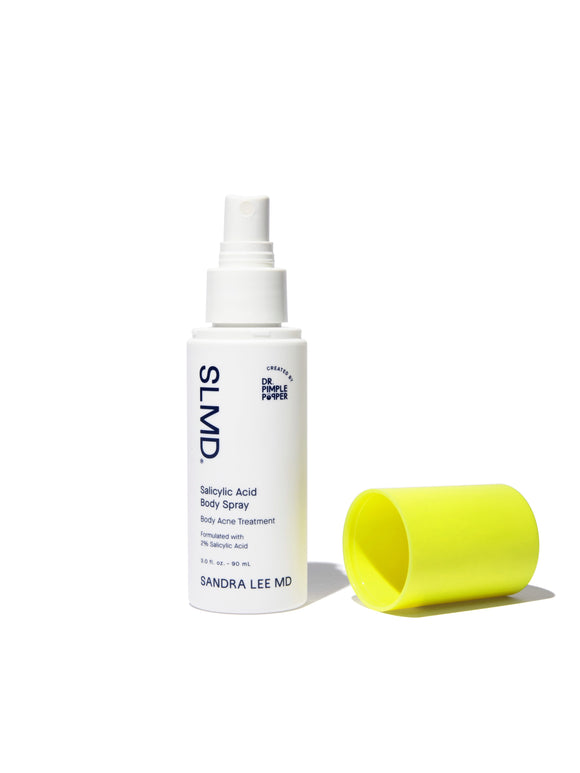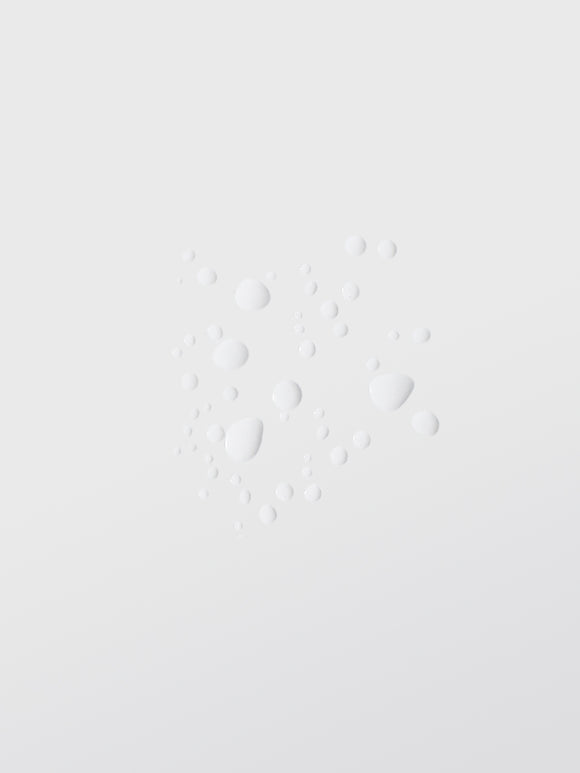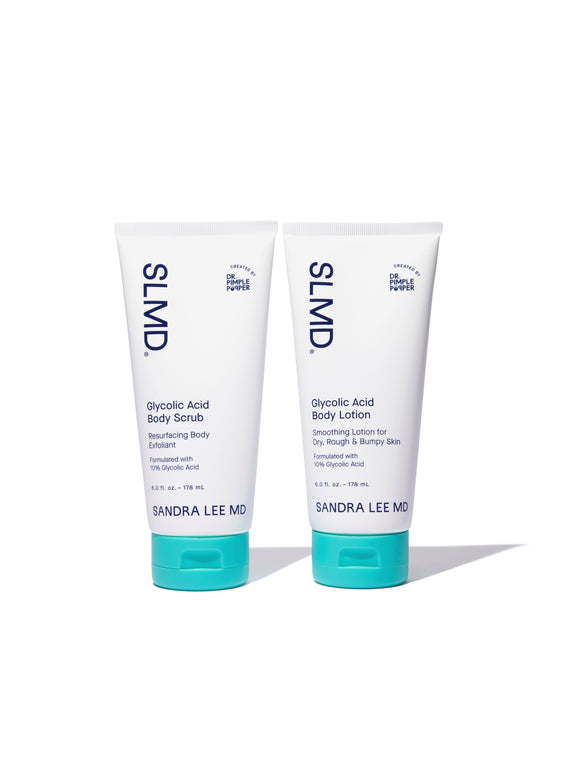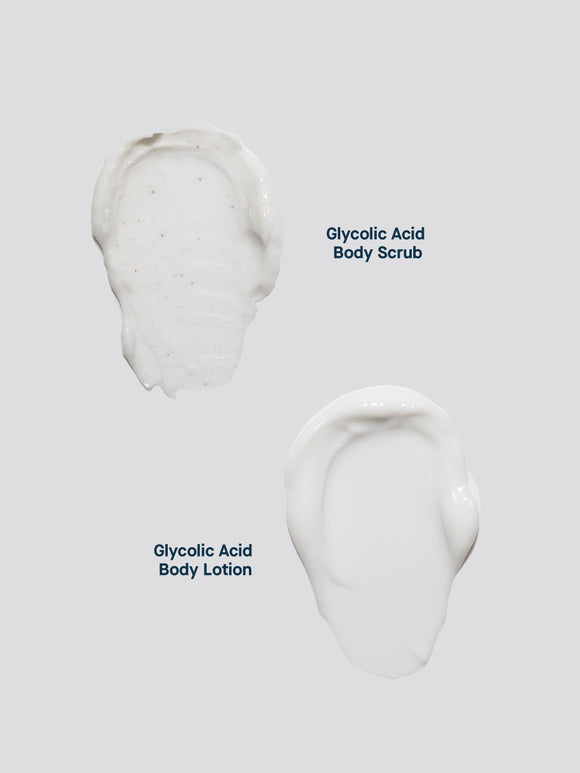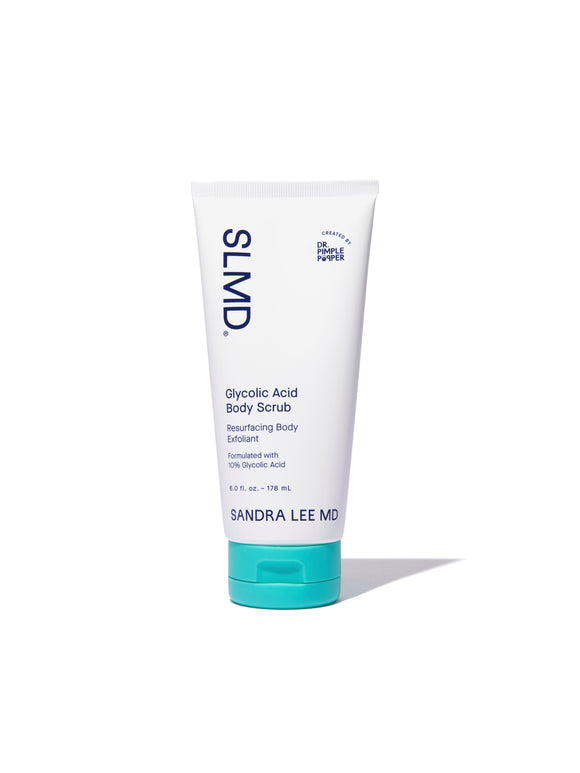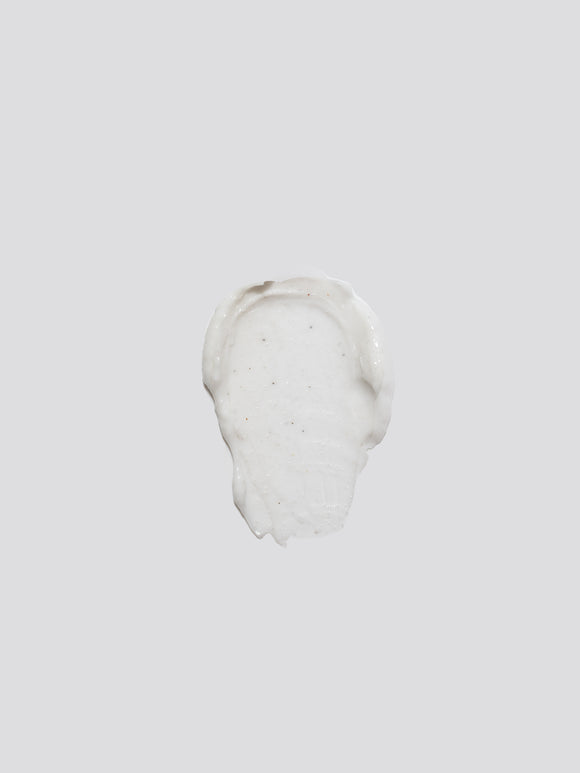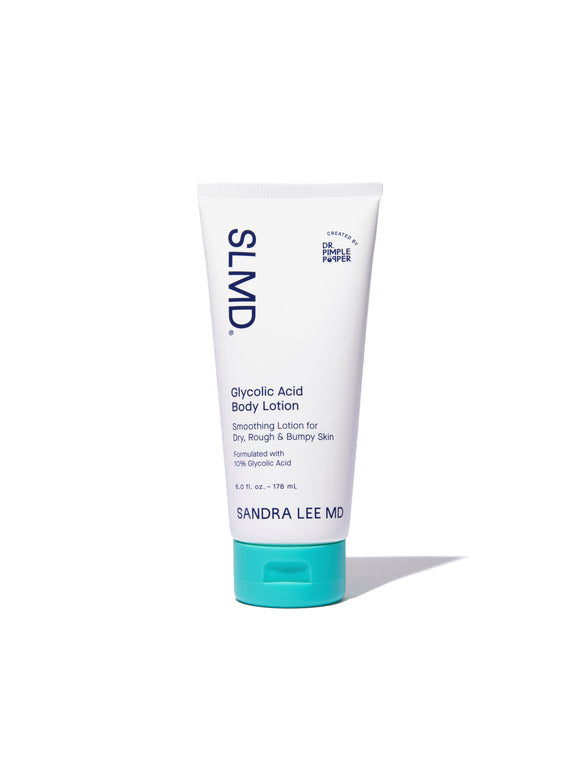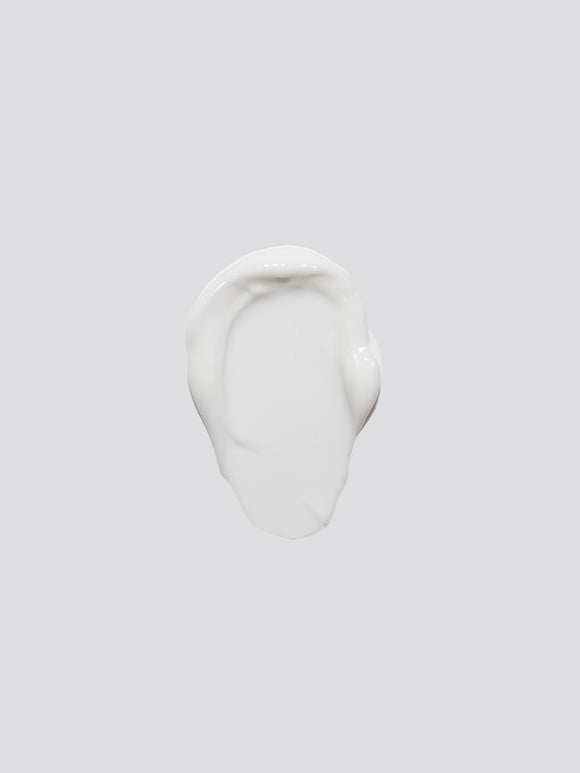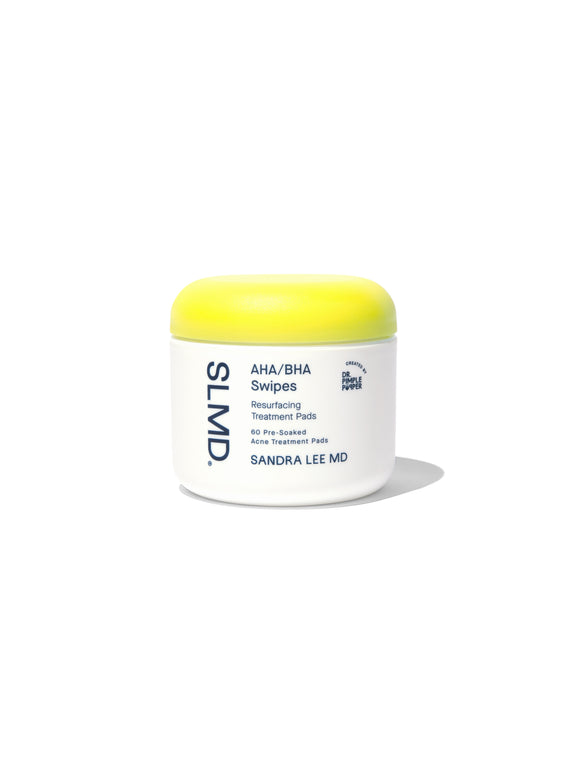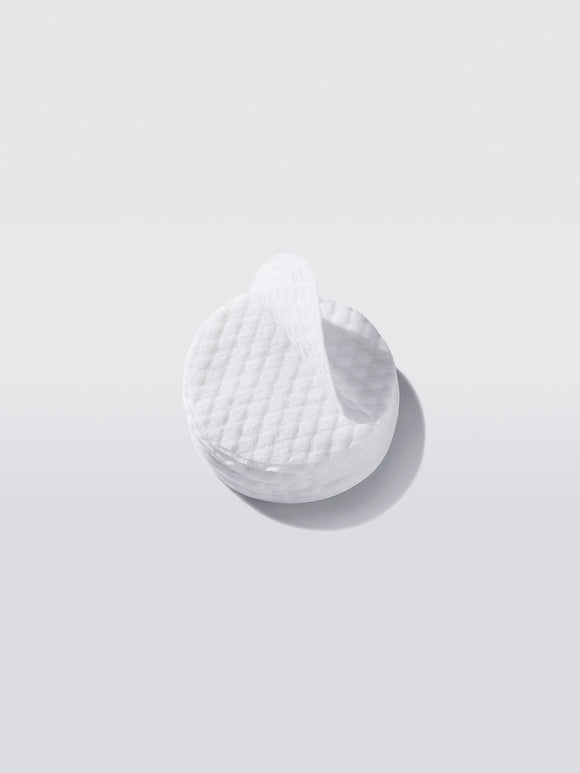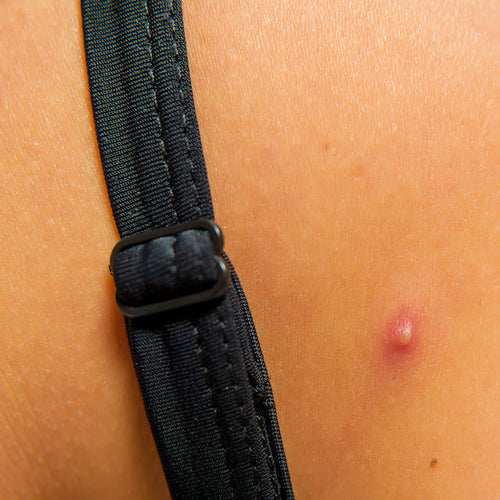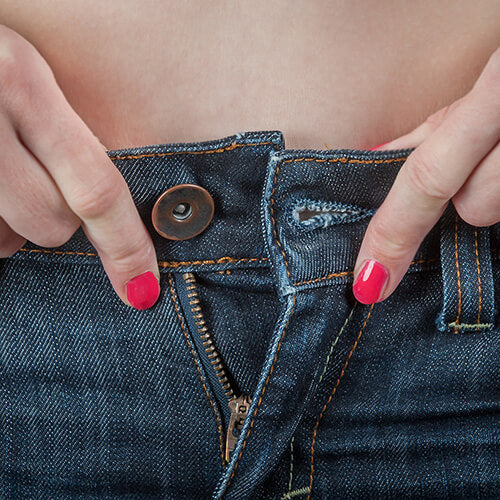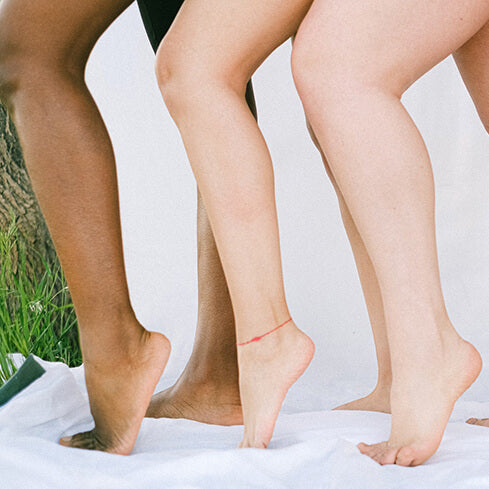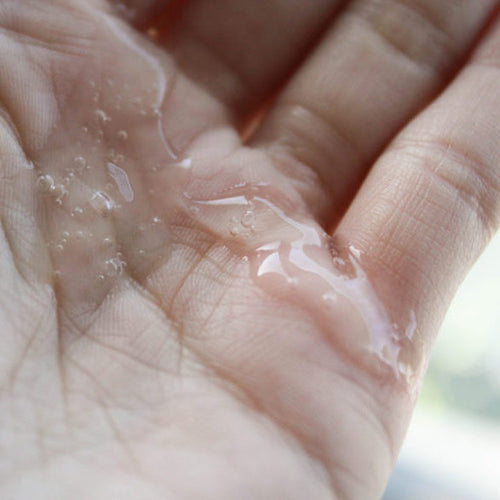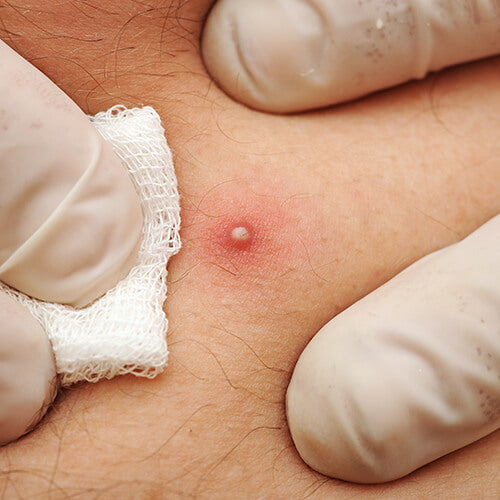
9 Mistakes You're Making When You Shower
Dr. Pimple Popper shares her hacks for making the most out of your daily rinse.Published:
5 minute read
Showering may feel automatic, but how you do it can have a real impact on your skin. This is especially true if you’re dealing with a skin concern like acne or keratosis pilaris, says dermatologist and SLMD Skincare founder Sandra Lee, MD (aka Dr. Pimple Popper). Read on to find out if you’re making any of the most common missteps in your shower routine — and what simple tweaks you can make to get the most out of your wash.
#1 Your water’s too hot
Long, steamy showers may feel relaxing, but consistently exposing your skin to very hot water can strip away natural oils (like sebum), that help protect the skin barrier. When the barrier becomes compromised, skin loses moisture more easily and may respond by producing excess oil to compensate. This rebound effect can contribute to clogged pores and breakouts, even though the skin feels dry.
Hot water can also aggravate conditions like eczema and make acne-prone skin more reactive. Turning the temperature down just a few degrees can make a noticeable difference over time.
#2 You’re drying off with a dirty towel
Towels collect oil, dead skin cells, and bacteria every time you use them. Reusing the same towel too many times can transfer those microbes back onto freshly cleansed skin, which is especially problematic for acne-prone areas, especially if you’re prone to inflammatory pimples.
Bacteria such as C. acnes thrive in warm, damp environments, and dirty towels create ideal conditions for them to spread. Using a clean towel regularly, and letting it dry fully between uses, helps reduce unnecessary exposure, including to common pathogens like staph.
#3 Your hair care isn’t skin friendly
Many people carefully evaluate their skincare products but overlook the impact of shampoo, conditioner, and hair masks. These products often run down the back, neck, and shoulders, where they can leave behind residue that clogs pores or irritates sensitive skin.
If you’re noticing breakouts along the hairline or on your back and shoulders, your hair care routine may be contributing. Ingredients like comedogenic oils, fragrance, or certain preservatives can be problematic for acne-prone or KP-prone skin.
#4 You’re using the wrong body wash
Body washes vary widely in how they interact with the skin. Some formulas rely on harsh detergents that remove too much oil, leaving skin tight and dry. When that happens, the skin may overproduce sebum to restore balance, increasing the likelihood of clogged pores.
A body wash formulated to address specific concerns like acne or rough texture can help cleanse without disrupting the barrier. The goal is clean skin that still feels comfortable after rinsing, not stripped.
Try: SLMD BP Body Wash
Dr. Pimple Popper's Shower Picks
#5 You aren’t exfoliating regularly
Body skin is thicker and more resilient than facial skin, which means it often benefits from regular exfoliation. Without it, dead skin cells can build up, trapping oil and contributing to breakouts or rough, bumpy texture associated with keratosis pilaris.
That said, exfoliation isn’t a case of more is better. Both chemical exfoliants and gentle physical exfoliation can be effective when used appropriately, but overdoing it can disrupt the skin barrier and lead to irritation. Paying attention to how your skin responds is key, especially if you have acne or an inflammatory condition like eczema.
Try: SLMD Glycolic Acid Body Scrub, Salicylic Acid Body Spray, Body Smoothing System
#6 You’re shaving the wrong way(s)
Shaving places stress on the skin, especially when blades are dull, pressure is too heavy, or hair is shaved against its natural growth pattern. These factors can lead to razor burn, irritation, and ingrown hairs, particularly in sensitive areas.
Prepping the skin properly, exfoliating beforehand, and replacing razor blades regularly can go a long way toward minimizing irritation. If ingrown hairs do appear, it’s best to avoid picking at them or shaving over them, since that can make inflammation worse. If you do get one, don’t pick it or shave over it. Dab on some antibacterial spot treatment instead.
Try: SLMD BP Acne Spot Treatment
#7 You’re forgetting to moisturize ASAP
Timing matters when it comes to moisturizing. Applying moisturizer to slightly damp skin helps seal in hydration more effectively than waiting until skin is fully dry. When skin dries completely before moisturizing, more water has already evaporated from the surface.
This step is especially important if you use warm water or exfoliate regularly, both of which can increase moisture loss.
Try: SLMD Glycolic Acid Body Lotion
#8 You’re showering too often
Showering multiple times a day can gradually wear down the skin barrier, even if each shower is short. Unless you’ve been sweating heavily, swimming, or wearing occlusive products like sunscreen, once a day is usually enough.
For quick refreshes between showers, spot cleansing or using exfoliating wipes can help manage odor or buildup without fully stripping the skin.
Try: SLMD AHA/BHA Swipes
#9 You’re not showering mindfully
Showering isn’t just about cleansing — it’s also an opportunity to check in with your skin. Rushing through every step can make it easier to miss irritation, dryness, or early breakouts that could be addressed sooner.
Taking a moment to notice how your skin feels, adjusting water temperature, and following a consistent routine can make daily showers more supportive of long-term skin health.
FAQ: shower mistakes and skin health
Q: Does showering too much cause acne?
A: Showering too frequently can strip the skin of protective oils, which may lead to increased oil production and clogged pores over time, especially on the body.
Q: Are hot showers bad for body acne?
A: Hot water can weaken the skin barrier and increase irritation, making acne-prone skin more vulnerable to breakouts.
Q: Can shower habits worsen keratosis pilaris?
A: Inconsistent exfoliation, very hot water, and skipping moisturizer can all make rough texture more noticeable.
Q: When should you moisturize after showering?
A: Applying moisturizer while skin is still slightly damp helps lock in hydration and support the skin barrier.
Q: Does shampoo cause back acne?
A: Hair care products can contribute to breakouts if residue is left on the skin, particularly on the back, shoulders, and neck.

Dr. Lee's Last Word
It’s easy to rush through a shower, but a little TLC can go a long way. When you pay attention to how your skin responds, you can then make a few simple changes to get the most out of your daily routine.



